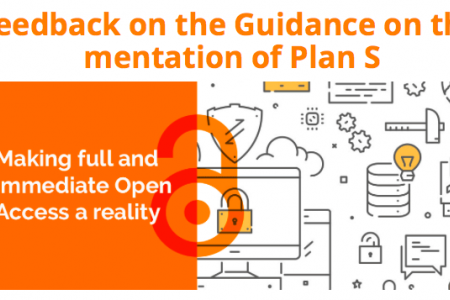Without Open Access the immediate road is always barred
In the International Open Access week, 23-29 October 2017 we are posting interviews conducted with Leiden researchers. Today Eric Eliel, LION.
In the International Open Access week, 23-29 October 2017 we are posting interviews conducted with Leiden researchers.
Today Eric Eliel, LION.
As director of the Leiden Institute of Physics, Eric Eliel has not been active as a publishing scientist for approximately 6,5 years. However, the Open Access output of ‘his’ physicists is something he values greatly.
“I am a firm believer in Open Access. We are publicly funded, so our output should be public property. An effective way to do that is Open Access. Anyone who wishes to have a look at what we do, should be able to do this. Nothing we do is secret. As scientists we never wanted to sit behind walls of isolation, it was the publication system that put up these walls. I, myself am irritated if I read about a paper somewhere and when looking it up I get to see a message like: pay 35 pounds and you can read it.”
Doesn’t the library provide you with access to these publications?
“Of course we know the roundabout ways, to login through the university library. However, if you just sit and relax on a Sunday afternoon with your laptop, see a news item and want to get some more detail, then the immediate road is always barred by this ‘please pay 30 pound’. Of course as a member of academia I can access it, but then I have to go through the extra minute and irritation. I accept the situation as it is for me, but the roundabout route does not exist for the majority of people in The Netherlands.”
Do you think a lot of people are willing to read research articles?
“Well maybe not in my specific field, condensed matter physics. However, we are constantly invited by the government to think about cooperating with small and medium enterprises. People who are interested, should be able to get access. The current paywall situation affects our ability to connect with society, get funding and fosters ignorance in people who wish to be knowledgeable. This is all due to the publishing companies and not a result of our wishes and beliefs.”
Do you actively tell the people of your institute to publish Open Access?
“It is the policy of our institute and university. However if you want to go to Open Access in a journal, the gold route is expensive and that keeps people away from going that route. Of course, there are ways to get your money back, such as the library deals. However there are so many things to keep track of, that some stay out of it and prefer the green route: they put their manuscript on Arxiv. It is not just a matter of money, but open access publishing should be a very simple procedure. The big deals between universities and publishers are good, but for researchers they are not on the top of their mind. It will take years before it is ingrained in them that there are deals. Arxiv is simple and simplicity trumps everything.”
Arxiv already exists since 1991 and your first Arxiv publication dates back to 2003. What has Arxiv brought to the physics community over time?
“Arxiv is immensely valuable to physics. As a manager, I also like to look up what someone has done over the last few years in Arxiv. If they are diligent about Arxiv it is the best overview, even better than the Web of Science. You will find more results as some things are not published in a traditional way.
For example if you work in a major consortium on an enormous project, such as the LIGO gravitational-wave inferometer or the KM3NeT neutrino observatory, there are many progress reports that really reflect personal output which are not published. They appear on Inspire and Arxiv. The traditional publications only start when the big bang comes, the gravitational waves are observed. In Web of Science you will see that the citation scores for these researchers suddenly jump from near zero to infinity because they were one of the thousand researchers on this seminal article. This makes their contribution very difficult to assess.
Arxiv also has whitepapers. One of our researchers for example is working on a possible new research project at CERN, ‘the search for hidden particles’. There is an incredible amount of work that goes into proceedings and proposals that are not published, but can be found on Arxiv. The funny thing is that these publications are easier to access than a publication in Nature or Science.”
Is there a difference in disciplines when it comes to Arxiv-uptake?
“It is mainly tradition. Condensed matter, high energy physics and astrophysics have a large tradition with Arxiv, but the biophysics community was not connected. For this, BioRxviv has been set up years later. I hope these repositories will merge eventually. But a repository such as Arxiv is a huge undertaking, it needs lots of support from the disciplines and universities. Currently, Leiden University pays for Arxiv. We first started paying as an institute because we believed in it. The amount of money needed is negligible on the library budget (2000-2500 dollar) and we are free to contribute or not. It is like charity.”
Do we still need traditional journals?
“If you give me the permission to dream: commercial publishers do not appear in my dream. They run and own the journals that create the most visibility. As a researcher you occasionally have to – because of funding – and want to score in the Nature family or Science. But these publishers want to make money; they have to. They can’t do this on advertisements only; running a journal with all the editorial and business sides is an expensive process, especially if you reformat the paper like Nature does.
The reformatting makes the articles glossy and gets people to leaf through Nature, something they won’t do with, for example, Optics Express. The chance of your paper being read by someone that is not directly connected to your research is therefore much higher when it is published in Nature or Science, and this yields the larger impact ratio. Even funders and members of parliament may read it there.”
Can we create a similar high impact experience in Open Access?
“I do believe that things will change. This afternoon, for example, I have to go to a PhD defense. In the thesis I saw all these QR-codes in the margin. I did not know what they were for, but after checking my iPhone, I found out they referred to Youtube movies. As an examiner I may question if these were part of the thesis or not, but I like these new possibilities opening up in publishing. Online publication and Open Access make it possible.
The new generation operates in completely different ways. Every year I see in theses that they spend more time on new methods to present their work. Science becomes more alive: you do not see a simple plot with five spheres, but get a movie that shows how the different spheres evolve. However, we have to think about integration. How can we keep the material usable? Open Access helps.
In the end I envision publishers will try to get into new ways of publishing as well. My deepest hope is that there will be so much happening, that the publishers will come running to us to form a joint community of researchers and publishers to get the scientific results to the people: Open Access brings science to the world.”





